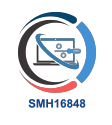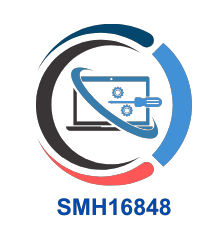As we move deeper into 2025, the liquor license consulting industry is undergoing a significant transformation. Driven by evolving legislation, increasing demand for streamlined services, and rapid advancements in technology, consultants in this field are now leveraging smarter tools to meet growing client expectations wholesale license. Whether you’re an aspiring bar owner or a franchise manager expanding your operations, understanding the future of liquor license consulting can give you a competitive edge.
Digital Integration Becomes Standard
Gone are the days when liquor license consultants relied solely on paper forms and manual submissions. Today, digital platforms are becoming the backbone of the application process. Government portals are increasingly enabling online submissions, making the process faster and more transparent. Consultants who utilize client portals, cloud-based documentation systems, and automated reminders for renewal dates are staying ahead of the curve.
AI-Powered Compliance Checking
Artificial Intelligence is stepping into the liquor license consulting space, offering a smarter way to navigate complex regulations. AI-powered tools can now analyze zoning laws, historical approval patterns, and state-specific legal nuances. This allows consultants to give faster, more accurate recommendations, and significantly reduce the risk of application rejection. Expect to see more firms adopting these intelligent systems to enhance the precision of their services.
Geospatial Tools for Zoning and Market Analysis
Zoning continues to be one of the most challenging aspects of obtaining a liquor license. New geospatial tools are helping consultants visualize zoning maps, identify proximity restrictions to schools and churches, and predict licensing success based on location history. This data-driven approach not only saves time but also gives clients more confidence in choosing the right property.
Integrated Licensing Dashboards
In 2025, liquor license consultants are increasingly using integrated dashboards that bring together multiple facets of the licensing journey. From application tracking and document uploads to fee management and deadline alerts, these dashboards simplify the experience for both consultants and clients. This consolidation of services into a single interface helps build transparency and reduces communication gaps.
Franchise and Multi-Location Support
The rise of franchising in the hospitality sector has brought new demands to the consulting industry. Tools that support multi-location tracking, standardized application workflows, and regulatory differences between states are becoming essential. Consultants offering franchise-specific services with centralized control will stand out in a crowded marketplace.
Evolving Regulatory Landscapes
Laws governing alcohol sales are becoming more nuanced, especially with increasing social and political pressure around responsible drinking. States are introducing stricter policies around server training, alcohol consumption zones, and late-night sales. Consultants who keep up with these evolving rules, and who can forecast changes based on proposed legislation, will remain invaluable partners to their clients.
Virtual Consultations and Remote Processing
Virtual meetings and digital document handling are now standard, especially post-pandemic. Clients expect to receive full-service consulting from anywhere in the world. Tools like digital signature platforms, virtual notary services, and remote filing systems are no longer optional—they’re essential.
Conclusion
The future of liquor license consulting is undeniably digital, data-driven, and client-centric. Success in this space depends on how well consultants adapt to new tools, understand evolving regulations, and meet the modern demands of business owners. As the industry continues to modernize, those who embrace innovation will lead the way in 2025 and beyond.

